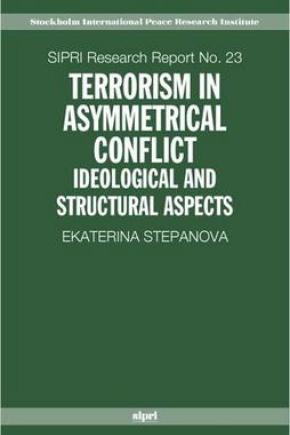Terrorism in Asymmetrical Conflict: Ideological and Structural Aspects
This thought-provoking book challenges the conventional discourse on—and responses to—contemporary terrorism. It examines the synergy between the extremist ideologies and the organizational models of non-state actors that use terrorist means in asymmetrical conflict. This synergy is what makes these terrorist groups so resilient in the face of the counterterrorist efforts of their main opponents—the state and the international system—who are conventionally far more powerful.
The book argues that the high mobilization potential of the supra-national extremist ideology inspired by al-Qaeda cannot be effectively counterbalanced at the global level by either mainstream secular global ideologies or moderate Islam. Instead, it is more likely to be affected and transformed by radical nationalism. Unless the political transformation of violent Islamist movements in specific national contexts is encouraged and the transnational ideology of violent Islamism is ‘nationalized’, it is unlikely to be amenable to external influence or to be destroyed by repression.
1. Introduction: Terrorism and asymmetry
2. Ideological patterns of terrorism: Radical nationalism
3. Ideological patterns of terrorism: Religious and quasi religious extremism
4. Organizational forms of terrorism at the local and regional levels
5. Organizational forms of the violent Islamist movement at the transnational level
6. Conclusions
Select bibliography

